A special issue curated by Kati Curts and Alex Kaloyanides
Volume 6: Issue 3 Characterizing Material Economies of Religion in the Americas
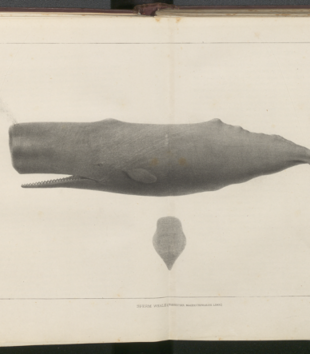 The Old Gods: Whales, Oil, and Teak
The Old Gods: Whales, Oil, and Teak
Judith Ellen Brunton, Richard Callahan, and Alexandra Kaloyanides endeavor to find the resonances their images pose to characterizing material economies of religion in the Americas. In emails from the autumn of 2020, each offers moments of speculation on the contexts shaping their research objects, and the supernatural powers and economies they enchant.
 American Performances, Economies, and Genealogies of Constraint
American Performances, Economies, and Genealogies of Constraint
In this collaboratively written exercise, the authors discuss the material significance of embodied sense perceptions and affects. Despite Protestant secularity’s claims to the contrary, sensation and affect are no more confined to interiorized subjective mental states than is religion merely belief.
 The Currency of Religion in America in Three Acts: Market Logics, Emissaries of Kinship, and Technologies of Feeling
The Currency of Religion in America in Three Acts: Market Logics, Emissaries of Kinship, and Technologies of Feeling
Cody Musselman, Kambiz GhaneaBassiri, and Roxanne Korpan each present an object for consideration. Together they think about what it means for each object to be involved in the material economy of religion. Their conversation traverses various geographies and traditions, and ponders how material objects can be carriers of religion.
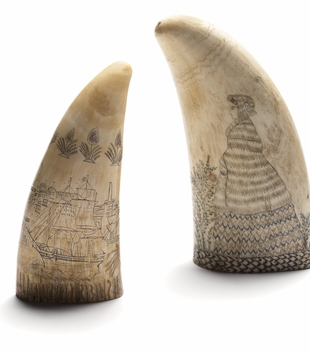 Sperm Whale Teeth in Circulation: A Case Study in Material Economics
Sperm Whale Teeth in Circulation: A Case Study in Material Economics
From Fijian ceremonial objects to nineteenth-century American whaling souvenirs, to airline membership cards, this constellation explores material economies through one raw material: sperm whale teeth.
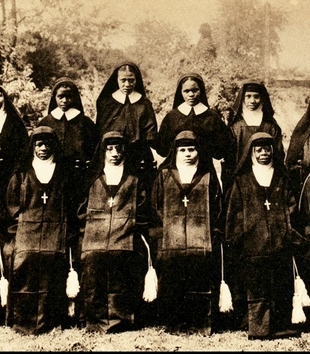 “Colored Magdalens,” House of the Good Shepherd for Colored Girls, Baltimore, ca. 1930s
“Colored Magdalens,” House of the Good Shepherd for Colored Girls, Baltimore, ca. 1930s
Was [the Magdalens'] decision to own in perpetuity the status of penitent a judgment on waywardness, or a benediction? An internalization of white surveillance, or its repudiation?
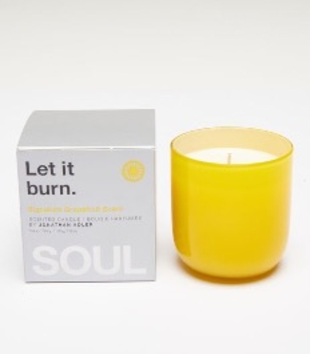 Let. It. Burn. SoulCycle's Jonathan Adler Grapefruit Scented Candle
Let. It. Burn. SoulCycle's Jonathan Adler Grapefruit Scented Candle
While a stationary bike is the main conduit for the SoulCycle experience, perhaps no object plays a greater role in facilitating SoulCycle’s choreography of emotion than the brand’s signature grapefruit-scented candle.
 The Sticky Cookies of Biblical Womanhood
The Sticky Cookies of Biblical Womanhood
Biblical womanhood blogs often resemble the idealized Christian home they encourage women to build. Businesses have long recognized the potential for profit in networked domesticity, enticing bloggers to participate in commercial enterprise by promising percentages of purchase costs made through their sites.
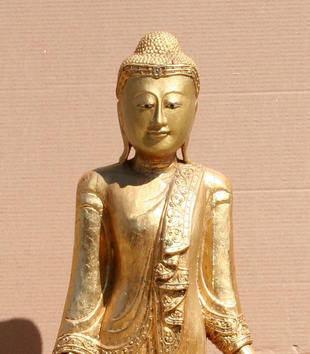 eBay Buddha
eBay Buddha
This golden Buddha, which has a striking resemblance to a Burmese Buddha in the British Museum, came up for sale on eBay for the sum of $5,000.00. The material of teak, the economies of the British and Burmese empires, the religion then being named "Buddhism," now give us this American eBay Buddha.
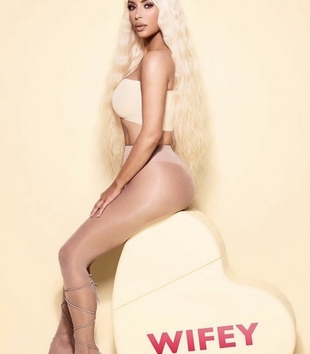 Wifey
Wifey
The fragrance Wifey by KKW Fragrances was released in 2019. As wife to black artist Ye (formerly Kanye West), Kim KW claimed and sold the role of wifey. The “wifey” is not simply a wife. She is a model or caricature of a wife, a down-ass. The “wifey” signifies a new ideal in our contemporary popular culture.
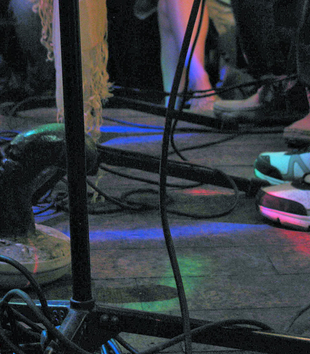 Making Paths with Stone
Making Paths with Stone
Eshu-Elegguá is a divinity in the Regla de Ocha-Ifá pantheon characterized as a warrior and messenger. Enslaved Africans in Cuba taught their descendants that a good relationship with this divinity is helpful for making risky choices and providing protection when embarking on a treacherous new beginning.
 Fuel for the Soul
Fuel for the Soul
The bible "God's Word for the Oil Patch: Fuel for the Soul" offers insight into how people theorise both the value of energy and the kind of lives people need to live to access this value. The publication implies that to have the kind of soul that lives a good life, you need to manage oil and its energy: souls are things that need fuel, be it "God's word" or oil itself. Oil work, in this context, becomes soul work.
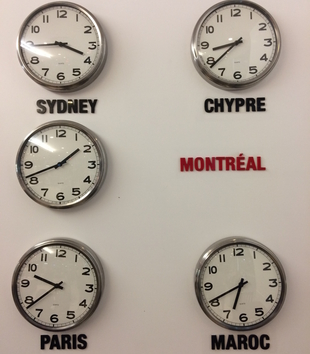 Bus Station Clocks
Bus Station Clocks
A row of clocks. Each one with an identical, nondescript face—except for the hands, which are conspicuous in their different orientations. Clocks are the kind of “religion” that spills out beyond the sphere of the sacred. Rows of clocks that evoke utopian, aspirational feelings of global connectedness. These are “religious” feelings in the deepest sense of the term.